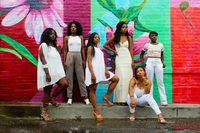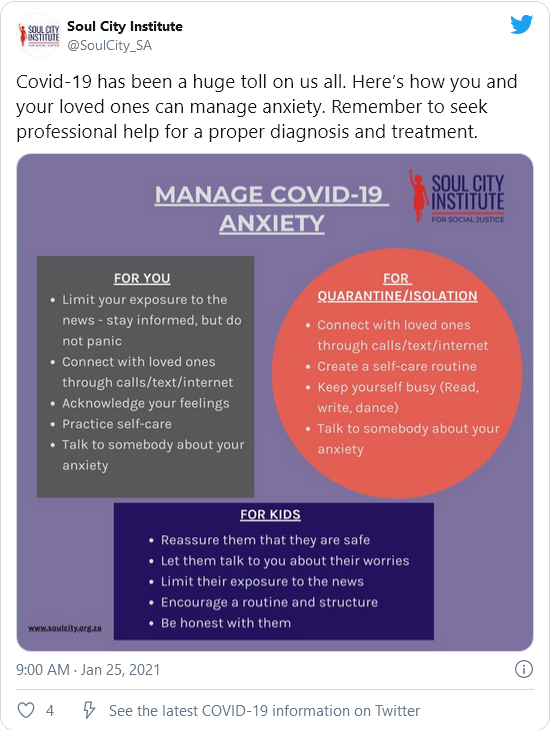
Women and adolescent girls should be first in line for Covid-19 vaccine, says NGO

The head of the Soul City Institute is calling on the government to prioritise women and adolescent girls in its Covid-19 vaccine rollout plans.
Soul City Institute CEO Phinah Kodisang plans to work with other organisations to lobby government to ensure that they properly consider women and girls during the vaccine rollout.
A feminist response to the vaccine
“A response to Covid-19 needs to have a feminist response,” said Kodisang. “It needs to centre women, it needs to centre adolescent girls and it needs to centre children.”
“Even now as vaccines are being lined up, we need to make sure that vaccines are distributed equitably,” Kodisang added.
Women are already affected by the slow economic development in the country and Covid-19 is not an excuse to further delay meeting women’s needs, said Kodisang.
“We know that we already live in an unequal society so we don’t want equality, we want an equitable response,” she explained. “We need to bring women closer.”
One way to do that is to ensure that young women are empowered with accurate information about vaccines. It is important to counter the misinformation and conspiracy theories spreading on social media and in communities.
“We need to clear them out of the way because it becomes a disturbance in terms of engaging meaningfully with young women about the importance of accessing those vaccines,” Kodisang said of the conspiracy theories.
“Conversations that will happen need to address the noise that is being made and the facts to be presented to young people about what the vaccine will do and how they can access it,” said the CEO.
Conversations with women
Health-e spoke to two young women to find out what they think about the Covid-19 vaccine.
“I want to get vaccinated for Covid-19 so that I can be protected but I don’t think that I have enough information about them [vaccines],” said Bridget Namanyana, a 22 year-old Gauteng resident.
Another, 23 year-old Mandisa Sidlayi said she has questions about the vaccine and did not want to be vaccinated immediately.
“A part of me feels that the Covid-19 vaccine is no different from the children and adult vaccines which currently exist,” she said.
“However, I believe that it takes ages to develop a new vaccine, so this makes me concerned because I don’t believe enough research has been done and that it has been tested properly, and proven to work,” added Sidlayi. “I have questions such as what are the side effects? So, no, I will not be taking the vaccine.”
Namanyana disagreed, saying young women like herself should look for information on the vaccines from various platforms.
“We all have to research about the vaccine, how it will work on our system, its side effects and how it will protect us. I think we can all get the information on the internet or from health care workers,” she responded.
But Sidlayi disagreed.
“We need vaccine education because I currently am not well informed about the vaccine as I should be and still have questions about it,” she said. “Clinics and hospitals could also give out pamphlets etc. to spread awareness about the vaccine and educate us.”

